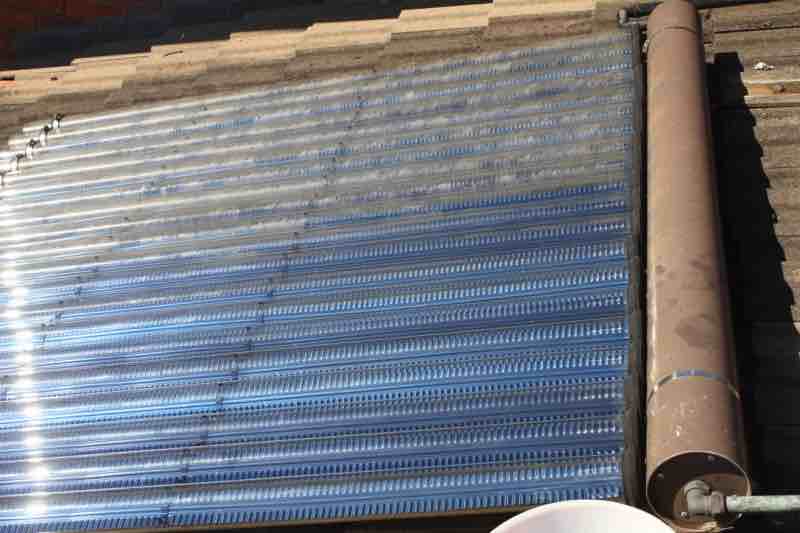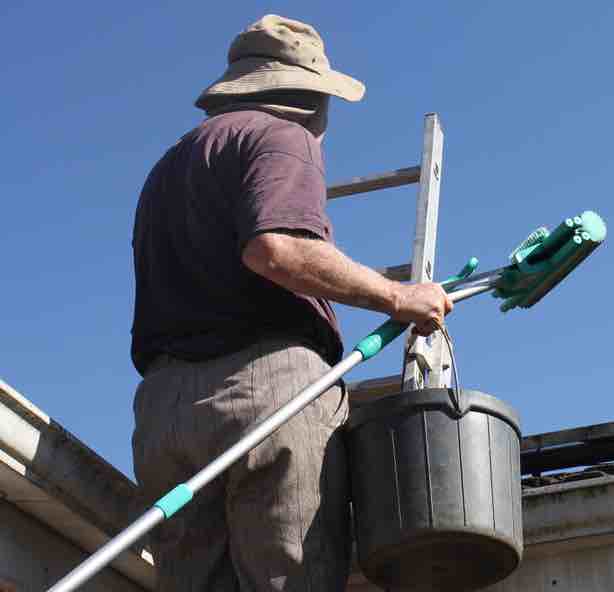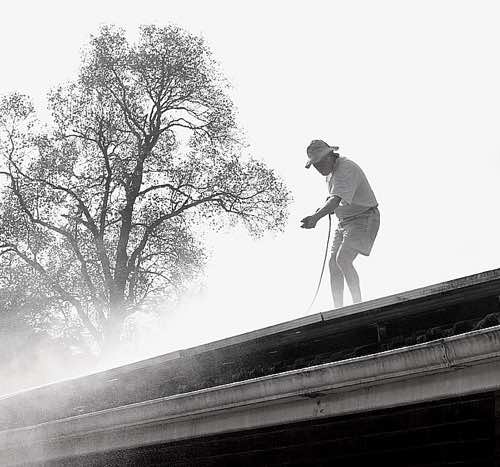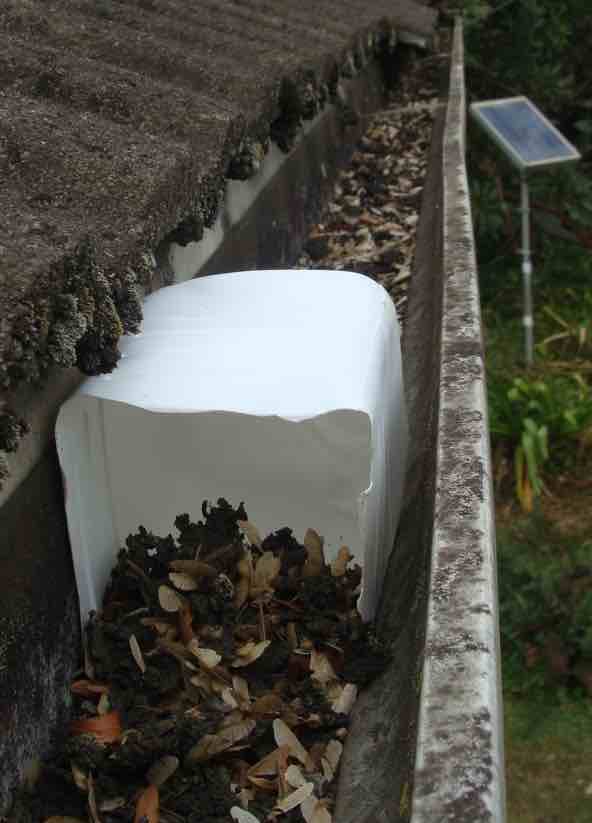- Homepage
- Our green solar power
- Clean Those Solar Panels
Clean those solar panels
Clean those solar panels and vacuum tubes; crud affects their performance significantly.
During the rainy season solar panels and the vacuum tubes used for heating water are cleaned regularly by Mother Nature; birds and our bees also poop on them, of course. But during our dry winter they become very grubby, hindering the sun’s light and infrared-radiation just when we need them to work optimally.
No one ever said being a greenie was easy; it’s not. Whether you are sorting the trash, building a compost heap or clambering on the roof to wash those solar panels it is hard physical work. It does beat going to the gym hands down in my book though.
Quick guide
More detail
Clean those solar panels

In Australia I believe one is not allowed to climb on your own roof without a certificate of competency. That’s absurd in my book but there is some sound reasoning behind it. I know of several people who have been seriously injured and two who were killed; it is dangerous. The ladder must either be held by an assistant or firmly secured to a rafter.
If you are using an extension ladder, make it protrude a metre beyond the level of the roof so you have something to hold onto. Mindfulness is everything.

For the solar panels a mop of sorts is most useful, firstly with a bucket of soapy water and then a sponge. Use the residue from the washing machine; waste not, want not. Some scrubbing will be necessary where the hadedas have left their contemptuous download on our feeble attempts to save money and the environment.
For the solar tubes it’s best on hands and knees with an old cloth; first soapy and then clean water. It is not difficult but tiresome.
 A high-pressure hose to finish the job
A high-pressure hose to finish the jobClean those gutters
And then if you are harvesting the rain the gutters need to be cleaned to remove all the autumn leaves and general crud. A two-litre milk jug cut in half helps and then rinse them out with a hose; it’s not wasted, ending up in the sump from which it can be used in the garden. Then you have water quality that makes it potable.

A few hours spent three times a year in order to have free electricity and ample clean water is surely not too much to ask. Stage 6 load-shedding and Day Zeroes pass right by, hardly noticed by those with a solar farm on their roofs; and an underground reservoir to harvest and store the rain.
But they do need to be cleaned and serviced just like everything else.
At least every second year, just before the rains begin, the reservoir must be drained and thoroughly cleaned. That is a big job but as we anxiously watch Day Zero now approaching in Gqeberha we know that our turn may be just around the corner. The City of Choice does not rank well in the Blue Drop report; stone last.
We go to all this trouble, making ourselves resilient in the face of these impending crises, not only for own sanity but also, more importantly to preserve Mother Earth for our children and their offspring. You must clean those solar panels and vacuum tubes thoroughly if you want clean water and plenty of electricity.
Air pollution
Air pollution is every year the silent killer of 26,000 premature deaths in South Africa according to the DoH; it smothers our solar panels and chokes the lungs of those living near power stations.
Clean those solar panels
Clean those solar panels during the dry and dusty seasons; the vacuum tubes used for heating water too.
Where is our water is an oft-heard cry in South Africa. Those who harvest the rain and capture the sunshine need not suffer these indignities. Isn't it time for you too to be sitting pretty?
Build an underground reservoir for water storage; it's a lot simpler and cheaper than you think.
When browsing use right click and "Open Link in New Tab" or you may get a bad gateway signal.
The material expressed on this page is gleaned from the nutritional and environmental literature; it is clearly referenced. A plain distinction is made between the author's opinion and that which is scientifically proven. When in doubt consult your health professional.
To suggest a correction or clarification, write to Dr Bernard Preston here. Contact.
Newsletter
Our newsletter is entitled "create a cyan zone" at your home, preserving both yourself and Mother Earth for future generations; and the family too, of course. We promise not to spam you with daily emails promoting various products. You may get an occasional nudge to buy one of my books.
Here are the back issues.
- Lifestyle and ideal body weight
- What are ultra-processed foods?
- Investing in long-term health
- Diseases from plastic exposure
- Intensive lifestyle management for obesity has limited value
- A world largely devoid of Parkinson's Disease
- The impact of friendly bacteria in the tum on the prevention of cancer
- There's a hole in the bucket
- Everyone is talking about weight loss drugs
- Pull the sweet tooth
- If you suffer from heartburn plant a susu
- Refined maize meal and stunting
- Should agriculture and industry get priority for water and electricity?
- Nature is calling
- Mill your own flour
- Bake your own sourdough bread
- Microplastics from our water
- Alternative types of water storage
- Wear your clothes out
- Comfort foods
- Create a bee-friendly environment
- Go to bed slightly hungry
- Keep bees
- Blue zone folk are religious
- Reduce plastic waste
- Family is important
- What can go in compost?
- Grow broad beans for longevity
- Harvest and store sunshine
- Blue zone exercise
- Harvest and store your rainwater
- Create a cyan zone at your home
Did you find this page interesting? How about forwarding it to a friendly book or food junkie? Better still, a social media tick would help.
- Homepage
- Our green solar power
- Clean Those Solar Panels
Address:
56 Groenekloof Rd,
Hilton, KZN
South Africa
Website:
https://www.bernard-preston.com